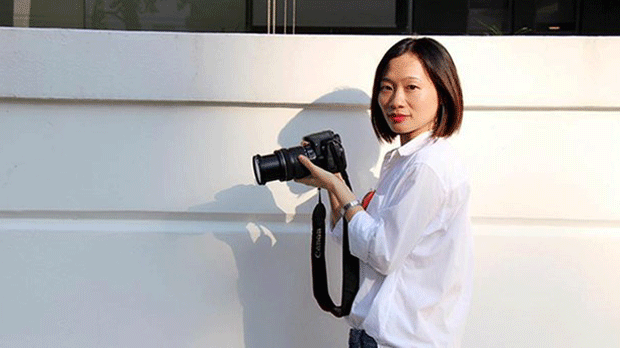
Authorities in the southern Chinese province of Guangdong have release women’s rights activist and independent journalist Sophia Huang, also known as Huang Xueqin, on “bail,” ahead of the Lunar New Year celebrations at the end of the month, rights groups said.
The Chinese Feminists group posted a message from Huang on its Facebook page, which read: “Hi, it’s Huang Xueqin. I’m back.”
“I’d like to thank everyone … I will remember [your support]. It’s not convenient for me to thank you in person just yet,” the message said, before striking a more defiant tone.
“A single second of darkness isn’t enough to make you blind,” it said.
Huang was detained on Oct. 17 by police in Guangdong’s provincial capital Guangzhou, on suspicion of “picking quarrels and stirring up trouble,” a charge that is often used to target peaceful critics of the government.
Huang was previously held in Guangzhou’s Baiyun District Detention Center, where police have interrogated her about a post she made about Hong Kong’s anti-extradition movement on June 10.
She was later transferred to an unknown location for “residential surveillance,” leading to concerns that she may be at risk of torture and other mistreatment.
Fellow activists have said Huang’s family have been threatened by the authorities and are too frightened to speak out in public about her situation.
Cases of harassment, assault
Before her detention, Huang had been an outspoken member of the country’s #metoo movement, and had carried out a survey of sexual harassment and assault cases among Chinese women working in journalism.
Huang, 30, originally planned to study law in Hong Kong but had her travel documents confiscated in August.
Many women who have tried to defend human rights in China have faced persecution, including arbitrary detention, torture and inhumane punishment by medical deprivation, according to the Chinese Human Rights Defenders (CHRD) network.
Huang was already under a travel ban imposed following her return from a trip to Hong Kong and Taiwan from February through August.
She had previously assisted in the investigation and reporting of a number of high-profile sexual harassment allegations against professors at Peking University, Wuhan University of Technology, Henan University and Sun Yat-sen University in Guangzhou.
Huang was present at a million-strong protest in Hong Kong on June 9 against plans to allow extradition to mainland China
The Paris-based press freedom group Reporters Sans Frontieres (RSF) says China is the largest prison in the world for journalists with at least 120 detainees and ranks 177th out of 180 countries and territories in the RSF World Press Freedom Ranking 2019.
Reported by RFA’s Cantonese Service and Mandarin Services. Translated and edited by Luisetta Mudie.
Source: Copyright © 1998-2016, RFA. Used with the permission of Radio Free Asia, 2025 M St. NW, Suite 300, Washington DC 20036. https://www.rfa.org.












